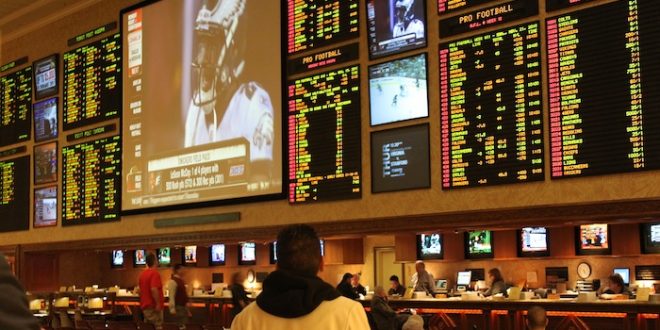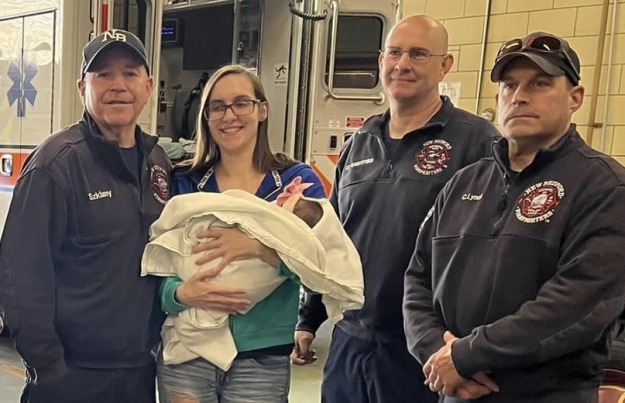By Colin A. Young
State House News Service
For some people, Massachusetts is well behind the pack and cannot legalize sports wagering soon enough. But others say lawmakers should pump the brakes, learn from research conducted in mature gambling markets and take the time to ensure that as many of the unknowns around sports betting are addressed in any bill that moves forward.
While 25 other states, including neighboring Rhode Island, New Hampshire and New York, have already authorized gamblers to place legal bets on sports, Massachusetts has been considering whether to similarly legalize betting since the U.S. Supreme Court in May 2018 ruled that the nearly-nationwide prohibition on sports wagering was unconstitutional and gave states the ability to legalize the activity.
“I don’t think it’s a surprise that sports wagering is garnering as much interest and excitement as it is in the Legislature given what’s happening nationally and in the region, but we continue to want Massachusetts to do it right,” Massachusetts Council on Gaming and Health Executive Director Marlene Warner said. “We took a while and we took our time to implement placing casinos here in Massachusetts, so I think sports wagering should be no different. We really want to make sure all the public health elements are contained in whatever bill moves forward.”
The House approved sports betting last session and Gov. Charlie Baker, Sen. Eric Lesser, who chairs the Committee on Economic Development and Emerging Technologies for the Senate, and almost a dozen others have already put forward proposals they hope will get attention early this session. The proposals offer various degrees and forms of consumer and public health protections.
Warner’s organization takes a neutral stance on sports betting, but is urging lawmakers to give the same kind of attention to responsible gambling measures and programs as they did before passing the 2011 expanded gaming law, which she said “went well beyond what any other state had ever implemented or proposed.”
Sen. Jamie Eldridge, who was part of a cadre of lawmakers who opposed casino gaming a decade-plus ago, is also drawing on experiences around the 2011 expanded gaming law as he considers a further expansion of gambling in Massachusetts. He said he is not opposed to sports betting generally but is worried about linking it directly to casino gambling.
“The argument back then, which I think continues to this day, is with people’s limited dollars for entertainment and for recreation, if it all goes into a casino then that’s money that’s not spent at the local restaurant or museum or in the community,” Eldridge said. “I just think it’s important to raise those questions with respect to sports betting because especially if it’s going to allow sports betting in casinos, at racetracks or simulcast or slots, is that only adding to people spending all of their money at a big corporate casino and not spending their money locally in their community?”
Online and Mobile Betting
Eldridge said he has been thinking of sports betting as mostly an online or mobile activity, and that allowing casinos, a slots parlor, racetracks and simulcast centers to accept bets as Lesser’s bill and others propose would further promote casino gambling.
He said he understands the concerns around the 24/7 nature of mobile betting, “but that’s not an atmosphere where everything is designed to keep you there spending more money and that’s where my concern is, people being drawn into the casinos and then spending more money than they expected at all the different places to spend money in a casino.”
Massachusetts currently has no form of legal online gambling (though some horse racing bets can be placed remotely with a particular account setup) and Warner said the state needs to think through both the pitfalls and opportunities presented by the online sports betting environment.
“The interesting thing about online gaming of any type … is there’s a lot more opportunity for intervention. But I think we have to determine what does that intervention look like,” she said. “A 45-year-old woman versus a 22-year-old man, they need different levels of intervention. It may be that a message needs to pop up at a different time, it may need to be fashioned differently. So those are the types of things we’re hoping to learn more about.”
Among the council’s priorities for any sports betting bill is a commitment to a robust research agenda and data collection, including a baseline study of sports betting activity and evaluations of responsible gaming measures. Massachusetts will also need to get a better understanding of who its bettors are. Many of the programs adopted by the Mass. Gaming Commission are geared towards the typical casino gambler and Warner said her organization and others don’t yet have segments of responsible gambling programs that they know will be effective with sports bettors.
“The reason folks want to implement sports wagering is because they’re going after a whole new or what they propose is a whole new gambler, people who are not typically going to walk into a casino … but are drawn to sports, are probably younger and more likely male, and interested in sports and placing wagers on sports,” she said. “We need to better understand who they are, how they play, what are the behavioral elements of their play that we really need to speak to when we think about prevention, intervention, treatment and recovery programs.”
Once regulators understand more about bettors, Warner said, online and mobile platforms provide many more chances to identify and interrupt potentially problematic betting. Some sports betting companies, Warner said, are working to develop algorithms they hope will be able to recognize the early patterns of problematic betting and flag accounts that may be headed in that direction.
“This is so much different from sticking a $10 bill into a slot machine where it’s really an anonymous process. We know so much about online play,” she said. “Online, you know every move they make, you know how much they’re spending, how quickly they’re making decisions in their games. So we’d get a lot more opportunity for intervention.”
Video Games as a ‘Training Ground’
Warner’s organization is well-positioned to focus on the attraction that sports betting holds for younger people and the possibility of it being available alongside games like Candy Crush or Words With Friends in the app store. Last fall, the council rebranded from the Massachusetts Council on Compulsive Gambling to the Massachusetts Council on Gaming and Health to reflect its increased focus on video gaming.
“Video gaming or iGaming often is a training ground for young gamers to start to understand and be drawn into gambling,” Warner said.
She pointed out that the latest NFL Pro Bowl did not take place in person because of the pandemic and was replaced by a livestream of NFL stars playing the popular Madden 21 video game against each other while millions of people watched on YouTube. “Certainly, there was an underlying sense that gambling was taking place there,” she said.
“All of these worlds are converging,” Warner said. “There is a ton of gaming in gambling and a ton of gambling in gaming.”
With that in mind, Warner said, lawmakers should be sure to put tight guidelines around sports betting advertising and “digigames” or free-to-play “practice” games that some apps offer before the user logs into their account.
Outright Opposition
Though Eldridge and the Mass. Council on Gaming and Health have not slammed the door on the idea of legalizing sports betting, others have. Stop Predatory Gambling, a Washington D.C. non-profit led by Les Bernal, a former aide to former Massachusetts state senator and expanded gambling opponent Susan Tucker, says commercialized sports betting is “a form of financial fraud, similar to loan-sharking, price-gouging, and false advertising that results in life-changing financial losses for millions of Americans.”
“If you pay for a hamburger, a ticket to a sporting event, or a glass of wine, that’s what you receive in return. In commercialized gambling, what you receive is a financial exchange offering the lure that you might win money,” the group says in a fact sheet on sports wagering. “But this financial exchange is mathematically rigged against you so inevitably you lose your money in the end, especially if you keep gambling. They make you feel good about losing your money.”
A study that looked at gambling through the financial transactions of 6.5 million people over seven years in the United Kingdom found that the “UK public’s gambling losses have steadily increased over recent years, as mobile and online technologies make gambling more available than ever before.” In 2019, more than 24 million people in the UK collectively lost more than £14.5 billion (about $20.2 billion in U.S. dollars) to bookmakers, casinos, lotteries and other gambling platforms.
“Results show a negative association between gambling and self-care, fitness activities (for example, gym membership), social activities, and spending on education and hobbies,” the study, published last month in the online journal Nature Human Behaviour, found. “There is also an association between gambling, social isolation and night-time wakefulness — individuals spending more on gambling travel less and are more likely to spend at night. A 10% point increase in absolute gambling equates to an 11.5% increase in nights awake and 9% reduction in social activities.”
The researchers also pointed out that “high levels of gambling are associated with a likelihood of mortality that is about one-third higher, for both men and women, younger and older.”
Stop Predatory Gambling also maintains what it calls a “Hypocrite Hall of Fame” to highlight the policymakers who propose or support expanding gambling options but do not gamble themselves.
“Why don’t they gamble away their own money on state-sanctioned gambling?” the organization asked in a 2018 report that detailed times key lawmakers in Massachusetts and elsewhere said they were not gamblers. “Because they know it’s a big con and it can be dangerous to their health. State-sanctioned gambling is the only business where most of the people who profit from it and promote it don’t do it and don’t want to live near it.”
Lesser, who will play a key role in the advancement of any sports betting legislation this session and has been promoting his bill on the subject, said Tuesday that he is not a gambler either.
“Have I done an office March Madness pool? Of course, but I haven’t done anything beyond that,” Lesser said Tuesday during an interview with the Zolak and Bertrand Show on 98.5 The Sports Hub.
 New Bedford Guide Your Guide to New Bedford and South Coast, MA
New Bedford Guide Your Guide to New Bedford and South Coast, MA









Tough luck, and here I thought that it was about time that I could bet on sports games while in a casino!